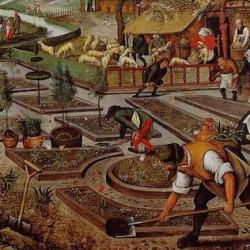For the first 1500 years of its existence, Christianity was a liturgical faith. That began to change with Wyclif and the Hussites, and the Reformation produced permanent forms of un- and even anti-liturgical Christianity. Ceremony took on negative connotations, synonymous with hollowness and superstition. Ritual was no longer seen as an instrument of grace; at best, rituals signified salvation. Salvation came by faith, and the evidence of faith came to be seen not as participation in a liturgical community but as an experience of conversion.
Lori Branch’s dense and illuminating Rituals of Spontaneity attempts to explain this sea-change in Christian history. She describes the rise of a “spirituality of spontaneity” that was both a symptom of religious imagination under pressure of epistemological and economic discourse yet contained resistances to this secularization (87). According to Branch, religion misunderstands itself in modernity because “it thinks of itself as defensible only as a system of knowledge, doctrines, and rules.” It misunderstands itself when it conforms to the demands of the system of economic and empirical rationality.
The sacred/secular dichotomy of modernity is one of the accommodations to the reigning ideology of modernity. Early modernity separates sacred and secular “because of the problems the simple abstraction of a discrete religious sphere solves.” Producing a religious sphere in opposition to the secular allows “acquisitive capitalism to flourish,” and it answers to the early modern need and desire for a realm of calculation and interest “free of ambiguity, doubt, and the radical responsibility of each act and belief.” It answers, in short, to the same needs that drove Descartes to the cogito.
Bunyan looms large in Branch’s narrative, since his struggles point to the ambiguities of of the sacred-secular divide. Though Bunyan’s religious rhetoric is infused with market analogies, he is most comforted when God does something that is whole inscrutable by market rules: “something in Bunyan’s own spirituality testifies to that which is inarticulaable in the ideology of salvation-as-exchange: the hope and desire for relation to the sacred other as something besides a subject-object, buying-and-selling, for conversation that is not being scrutinized as proof, for prayer that is not about getting something” (88-89).
Bunyan’s faith is enmeshed in economic epistemology, but he is resistant. He retains a hope for love and relation outside exchange, a relation that made it possible to pray.











